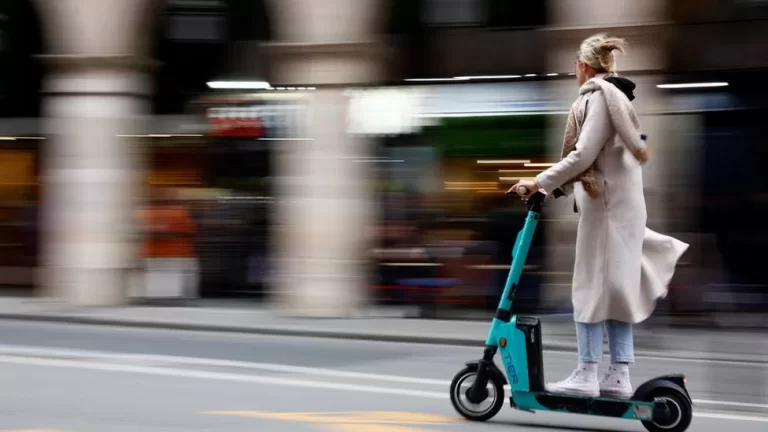A ban on rental electric scooters has come into effect in Paris in response to a rising number of people being injured and killed in the French capital.
Almost 90% of those who took part in April's vote over the issue were in favour of the ban – but fewer than 8% of those eligible turned out to vote. Paris is now one of the first capitals to have outlawed the rented electric vehicles, just five years after being one of the first to adopt them.
But is the ban simply an example of democracy in action, or are more cynical forces at play?
It's not that I'm taking sides. As a cyclist of the traditional variety, I am more than a little peeved by the way electric “personal vehicles” like e-scooters are crowding out our space. Forty years campaigning for cycle paths, only to be squeezed to the side by a new kind of motorised transport – that gets one's goat.
Nor do I take kindly to what – as a father of young children – I have in recent years witnessed all too regularly: scooters powering down the pavement and requiring urgent avoidance. A good friend of mine broke a rib when he was knocked over by an e-scooter in Paris. This was last year, and it still hurts when he coughs.
No, I have no love for the free-floating vehicle. If I had my way, they would never have been invented, and today the population would be biking around the streets of Paris like it was Amsterdam in the '70s – using legs, not fingers on a button.
But that does not mean I can't see a stitch-up when it's staring me in the face. The mayor of Paris, Anne Hidalgo, is a member of the Socialist party. That great institution once provided presidents for France, such as François Mitterrand and François Hollande.
But in last year's presidential election, when Ms Hidalgo stood as the Socialist candidate, she got 1.75% of the national vote. It was pitiful. Nothing if not dogged, Ms Hidalgo believes political hills are to be climbed. Needing to find a new cause to show that in Paris at least she still counted as a winner, she lit upon e-scooters.
Seemingly forgetting that it was she herself who introduced on-street hiring in 2018, she became overnight the voice of the antis – all those people who find scooters profoundly annoying.
Then at the start of this year, she announced her masterstroke: let the voter decide. Personally she was opposed, but whatever the result of the referendum – she said – she would follow the choice of the people. Who can say fairer than that?
And so the vote happened, with minimum publicity, in April. Barely one in 14 of the Paris electorate made the effort. And perhaps unsurprisingly, they nearly all said they wanted the machines banned. What happened was obvious, and predictable. Older people – who vote regularly and hate e-scooters – turned out in force. Many younger people, who actually use the things. are more likely to have stayed at home.
The mayor had her victory. And now the last of the rented scooters have been withdrawn from the street, much to the chagrin of tourists, late-night revellers and, yes, some commuters. A lot of other people will be delighted – not least dealers in e-scooters, because privately-owned vehicles are unaffected.
I imagine it like the moment a century ago when the last horse quietly left the metropolis. His day was done. No more would the familiar clip-clop echo over the cobbles. A quiet field awaited. But of course it is not like that at all. Horses had been taking people around Paris since the Romans called it Lutetia. They'd been made redundant by the combustion engine.
Free-floating e-scooters have been around all of five years. Nothing has replaced them. Unlike the horses, I can't help feeling that at some point they'll be back.
— CutC by bbc.com


